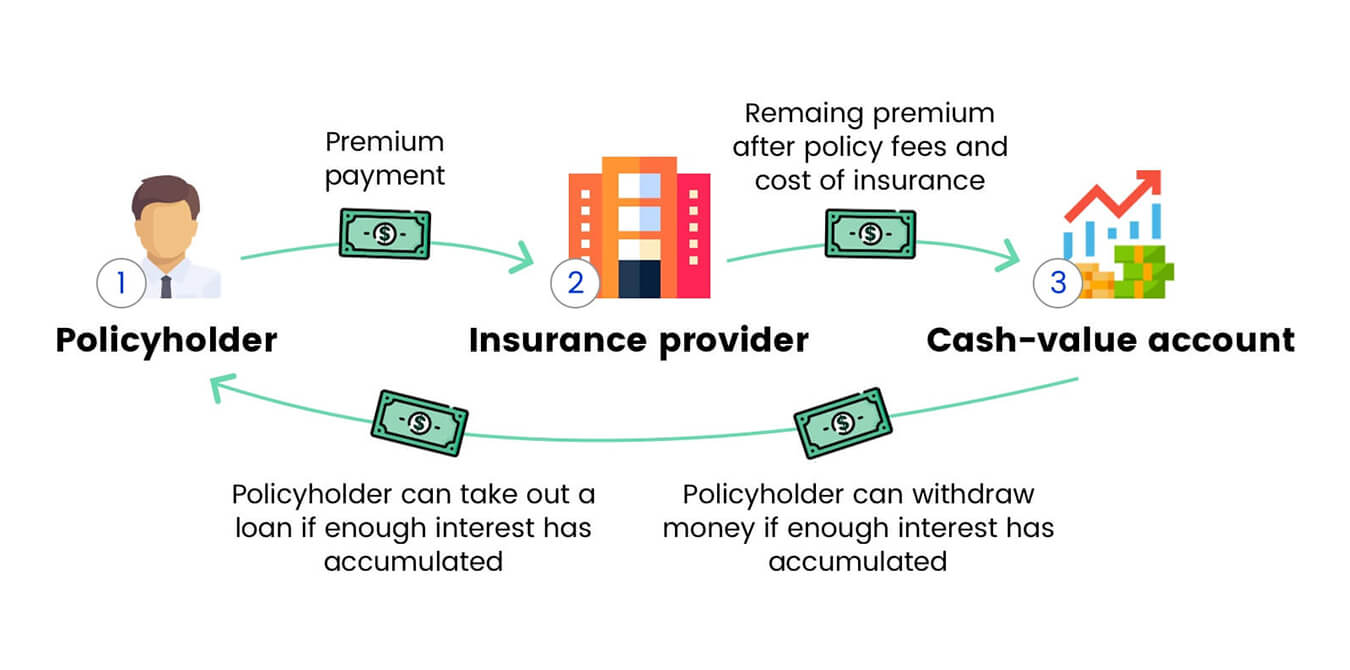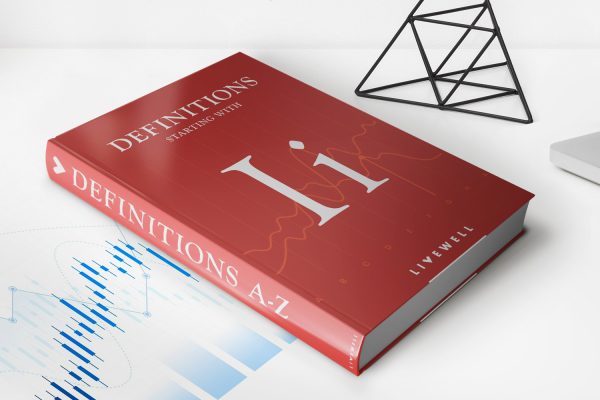Home>Finance>Who Should Be The Owner Of A Life Insurance Policy?


Finance
Who Should Be The Owner Of A Life Insurance Policy?
Published: October 14, 2023
Discover who should be the rightful owner of a life insurance policy. Protect your finances and loved ones with the right ownership arrangement.
(Many of the links in this article redirect to a specific reviewed product. Your purchase of these products through affiliate links helps to generate commission for LiveWell, at no extra cost. Learn more)
Table of Contents
Introduction
Life insurance is a critical financial tool that provides financial protection and support to loved ones in the event of a policyholder’s death. When purchasing a life insurance policy, one important decision to make is who should be the owner of the policy. The policy owner is responsible for managing the policy, paying premiums, and making decisions that may affect its terms and benefits.
Choosing the right owner for your life insurance policy is a crucial decision that requires careful consideration. The owner has control over the policy and can make changes to beneficiaries and coverage. The choice of policy owner can have legal and financial implications, so it’s essential to understand the options and implications before making a decision.
In this article, we will discuss the importance of life insurance ownership and explore the different options available. We’ll look at the primary policy owner, secondary policy owner, and the importance of naming beneficiaries. Additionally, we’ll consider factors to keep in mind when choosing the policy owner, such as estate planning and business ownership. By understanding these aspects, you’ll be better equipped to make an informed decision about who should own your life insurance policy.
Importance of Life Insurance Ownership
Choosing the right owner for your life insurance policy is crucial, as it determines who has control over the policy and its benefits. Here are some key reasons why life insurance ownership is essential:
- Decision-Making Power: The policy owner has the authority to make decisions regarding the policy, such as increasing or decreasing coverage, changing beneficiaries, or even surrendering the policy. By being the policy owner, you have control over these critical decisions that can impact the policy’s value and benefits.
- Payment Responsibility: As the policy owner, you are responsible for paying the premiums. This gives you the freedom to customize the payment schedule and ensure that the policy remains in force. Choosing a responsible policy owner ensures that the premiums are paid on time, avoiding any lapses in coverage.
- Flexibility and Customization: Life insurance policies can be tailored to suit the needs of the insured and their beneficiaries. By owning the policy, you have the flexibility to modify the coverage as circumstances change. This may involve adjusting the death benefit, adding riders for additional protection, or changing the policy’s term or type.
- Privacy and Confidentiality: The owner of a life insurance policy has the right to keep the details of the policy private. This can be beneficial in cases where the insured wishes to keep the existence and value of the policy confidential from certain individuals or entities.
Having a clear understanding of the importance of life insurance ownership helps ensure that the right person or entity assumes this role. It sets the stage for effective management of the policy and enhances the overall benefits it provides to the insured and their loved ones.
Primary Policy Owner
The primary policy owner is the initial owner of the life insurance policy. This individual or entity has full control and ownership rights over the policy. Here are some common scenarios where the primary policy owner may be identified:
- Individual Policy Owner: In most cases, the insured individual is also the primary policy owner. This is a straightforward arrangement where the person covered by the policy takes on the responsibility of owning and managing it.
- Spousal Ownership: Married couples often choose to have one spouse as the primary policy owner. This arrangement offers convenience and allows for easy management of the policy’s premiums and benefits.
- Trust Ownership: Establishing a trust as the primary policy owner can provide added benefits, especially for estate planning purposes. The trust acts as a legal entity that holds the policy, ensuring that the benefits are distributed according to the trust’s terms.
The primary policy owner has the authority to make changes to the policy. They can adjust coverage amounts, change beneficiaries, or even transfer ownership to another individual or entity, subject to certain conditions. It’s important to note that the primary policy owner is responsible for premium payments and managing the policy throughout its term.
When determining the primary policy owner, it’s crucial to consider factors such as the insured’s relationship to the owner, the owner’s ability to manage the policy, and their financial stability. Additionally, if the primary policy owner passes away before the insured, it’s important to have a contingency plan in place regarding the succession of ownership.
Ultimately, the primary policy owner should be someone who is trustworthy, responsible, and capable of managing the policy effectively. By choosing the right primary owner, you can ensure that the life insurance policy serves its intended purpose and provides the necessary financial protection for the insured and their beneficiaries.
Secondary Policy Owner
In addition to the primary policy owner, there is also the option to designate a secondary policy owner. The secondary owner takes on the role of owning and managing the policy if the primary owner becomes unable or unwilling to fulfill that responsibility. Here are a few key points to consider regarding the secondary policy owner:
- Backup Ownership: Designating a secondary policy owner provides a backup plan in case the primary owner is no longer able to fulfill their role. This can happen due to various reasons, such as death, incapacity, or simply deciding to transfer ownership voluntarily.
- Succession Planning: Naming a secondary policy owner ensures a smooth transition of ownership, avoiding any legal or administrative complications. It provides clarity and certainty regarding who will assume control over the policy in case of a change in circumstances.
- Relationship to the Insured: The secondary policy owner can be a different individual or entity compared to the primary owner. It is crucial to select someone who has a close relationship with the insured and is capable of managing the policy effectively.
When choosing a secondary policy owner, consider their ability to fulfill the responsibilities associated with policy ownership. This includes managing premium payments, making changes to the policy, and ensuring that the policy adequately meets the needs of the insured and their beneficiaries.
It’s important to review and update the designation of the secondary policy owner periodically, especially if there are changes in circumstances or relationships. This ensures that the policy remains aligned with your current preferences and circumstances.
By having a secondary policy owner in place, you can have peace of mind knowing that the policy will be well-managed and that the intended benefits will be provided to the insured and their beneficiaries, even in unforeseen circumstances.
Naming Beneficiaries
When it comes to life insurance, determining who will receive the death benefit is a crucial decision. This is done by naming beneficiaries, individuals or entities who will receive the policy proceeds upon the insured’s death. Here are some important considerations when naming beneficiaries:
- Primary Beneficiaries: Primary beneficiaries are the first in line to receive the death benefit. You can name one or multiple primary beneficiaries, specifying the percentage or amount each will receive. It’s important to be clear and specific when providing beneficiary designations to avoid confusion or disputes.
- Contingent Beneficiaries: Contingent beneficiaries are secondary recipients who will receive the death benefit if the primary beneficiaries are no longer alive at the time of the insured’s death. These beneficiaries become primary beneficiaries in the event that the original beneficiaries pass away before the insured.
- Estate as Beneficiary: If you name your estate as the beneficiary, the death benefit will become part of your estate and subject to probate. This may result in delays and potential liabilities. Naming specific individuals rather than the estate can help avoid probate and ensure a smoother and faster distribution of the death benefit.
- Revocable vs. Irrevocable Designations: It’s important to understand that beneficiary designations can be either revocable or irrevocable. Revocable designations allow you to change beneficiaries at any time, providing flexibility. Irrevocable designations, on the other hand, cannot be changed without the consent of the beneficiary. Consider the potential implications and consult with legal and financial professionals before making irrevocable designations.
Naming beneficiaries is a vital part of the life insurance planning process, as it ensures that the policy proceeds go to the intended recipients. It’s important to review and update beneficiary designations regularly, especially if there are significant life events such as marriage, divorce, birth, or death in the family.
Having clear and up-to-date beneficiary designations can provide peace of mind, knowing that your loved ones will be financially taken care of when the time comes. Consult with a qualified professional to understand the legal and tax implications of naming beneficiaries and to ensure your wishes are properly recorded in your life insurance policy.
Considerations for Ownership
When deciding who should be the owner of a life insurance policy, there are several important considerations to keep in mind. These factors can significantly impact the management, control, and benefits of the policy. Here are some key considerations for policy ownership:
- Relationship to the Insured: Consider the nature of the relationship between the insured and the potential owner. This can be a spouse, family member, business partner, or a trust. The owner should have a vested interest in the insured’s well-being and be able to make decisions that align with their best interests.
- Financial Responsibility: Evaluate the financial stability and responsibility of the potential owner. They should have the means to pay the policy premiums consistently to ensure that the policy remains in force and the benefits are not jeopardized.
- Capacity to Manage: Assess the ability of the potential owner to effectively manage the policy. This includes understanding the policy terms, making informed decisions, and communicating with the insurance company as needed. It’s crucial to choose someone who is capable and willing to take on these responsibilities.
- Adequate Knowledge: The policy owner should have a good understanding of life insurance and its purpose. They should be aware of the policy’s features, such as the death benefit, cash value, and any riders or options added to the policy.
- Estate Planning Considerations: Consider the impact of policy ownership on estate planning. Depending on the size of the estate, having the life insurance policy owned by a trust or another entity may provide certain tax advantages and protection for the policy proceeds.
It’s important to carefully evaluate these considerations and consult with legal and financial professionals to ensure that the chosen policy owner aligns with your specific needs and goals. They can provide guidance and help you navigate the complexities of life insurance ownership.
Remember, the owner of a life insurance policy plays a vital role in managing the policy, making decisions, and ensuring the intended benefits are provided to the insured and their beneficiaries. Taking the time to select the right owner is crucial for maximizing the value and benefits of the policy.
Estate Planning and Ownership
Life insurance ownership is closely intertwined with estate planning, as it can play a significant role in the distribution and preservation of your assets. Effective estate planning ensures that your loved ones are taken care of and that your assets are handled according to your wishes. Here’s how life insurance ownership ties into estate planning:
Probate Avoidance: When a life insurance policy is owned by an individual and the proceeds are payable to beneficiaries outside the estate, they typically bypass the probate process. This means that the beneficiaries receive the death benefit directly and without delay, avoiding potential legal complications and expenses associated with probate.
Tax Efficiency: Proper ownership of a life insurance policy can offer tax advantages. For example, if the policy is owned by an irrevocable life insurance trust (ILIT), the death benefit can be excluded from the insured’s taxable estate. This can help minimize estate taxes and maximize the amount passed on to beneficiaries.
Creditor Protection: Depending on your jurisdiction, the ownership structure of a life insurance policy can provide creditor protection. By placing the policy within a trust or other protected entity, you may safeguard the proceeds from potential claims or creditors.
Equalizing Inheritances: Life insurance can be a useful tool in equalizing inheritances among beneficiaries. For example, if you have assets that you would like to leave to one child, you can name your other children as beneficiaries of a life insurance policy. This helps ensure that all your children receive a fair share of your estate.
When considering estate planning, it’s crucial to consult with professionals such as estate attorneys or financial planners who specialize in this area. They can provide guidance on the most suitable ownership structure of your life insurance policy, taking into account your specific goals and circumstances.
Ultimately, combining effective estate planning with appropriate life insurance ownership can help preserve your assets, simplify the distribution process, and provide financial security for your loved ones in the future.
Business Ownership of Life Insurance Policies
Life insurance policies can also be owned by businesses, providing valuable protection and benefits for businesses and their stakeholders. Here are some key considerations regarding the business ownership of life insurance policies:
- Key Person Insurance: Businesses often purchase life insurance policies on key individuals within the organization. This ensures that if a key person were to die, the company would receive a death benefit to offset the financial impact of their loss. The policy proceeds can be used for various purposes, such as covering recruitment costs, paying off debts, or sustaining business operations during the transition.
- Business Succession Planning: Life insurance can play a crucial role in business succession planning. By using life insurance policies, business owners can ensure that a smooth transition of ownership is facilitated upon their death. The policy proceeds can be used to facilitate the buyout of shares or interests by the surviving owners or to provide funds for the deceased owner’s family.
- Employee Benefits: Businesses can use life insurance policies as part of their employee benefits package. This can include providing group life insurance coverage for employees, which serves as a valuable employee retention and recruitment tool. Additionally, some policies may allow for voluntary supplemental coverage that employees can opt for.
- Collateral for Loans: Life insurance policies owned by businesses can be used as collateral for loans. This can help businesses secure financing at more favorable terms, as the policy’s cash value or death benefit serves as a guarantee for the lender.
- Buy-Sell Agreements: Life insurance policies are commonly used in buy-sell agreements to ensure a smooth transition of ownership in the event of the death of a business owner. The policies provide the funds necessary for the surviving owners to purchase the deceased owner’s share of the business, ensuring continuity and financial stability.
Business owners considering the ownership of life insurance policies should consult with financial advisors, attorneys, and insurance professionals who specialize in business insurance. They can help assess the specific needs and goals of the business and structure the policy ownership in a way that maximizes the benefits for all stakeholders.
By leveraging the advantages of business ownership of life insurance policies, businesses can protect their financial interests, secure their future, and provide valuable benefits to key individuals and employees.
Key Factors to Consider in Choosing the Owner
Choosing the right owner for your life insurance policy is a decision that should be made after careful consideration of several key factors. The owner of the policy plays a crucial role in managing and controlling the policy, so it’s important to choose someone who is trustworthy and capable. Here are some key factors to consider when selecting the policy owner:
- Trustworthiness: The policy owner should be someone you trust implicitly. They will have control over the policy, including making decisions about beneficiaries and potential changes to the policy terms. Ensure that the chosen owner has a track record of responsible financial management and has your best interests in mind.
- Financial Responsibility: Consider the financial stability and responsibility of the potential owner. The owner will be responsible for paying premiums on time to keep the policy active. It’s crucial to select someone who has the financial means to fulfill this responsibility and who understands the importance of timely premium payments.
- Relationship to the Insured: Determine the relationship between the policy owner and the insured. It could be the insured themselves, a spouse, a family member, or a business partner. Choose someone who has a clear understanding of your financial goals, personal wishes, and who is capable of carrying out your intentions.
- Capacity to Manage: Evaluate the potential owner’s ability to effectively manage the policy. Do they have the knowledge and understanding of life insurance, including the policy’s features and provisions? Are they capable of making informed decisions about the policy’s ongoing management and maintaining communication with the insurance company?
- Estate Planning Considerations: Consider the impact of policy ownership on your overall estate planning. Review how the ownership arrangement aligns with your estate plan and any desired asset distribution. Consult with legal and financial professionals to ensure coordination and consistency between your life insurance policy and your broader estate planning goals.
It’s important to carefully weigh these factors and choose the policy owner thoughtfully. Remember, the owner has significant control over the policy and its benefits, so selecting the right person or entity is critical to ensure that the policy aligns with your wishes and provides the intended financial protection for your loved ones.
Conclusion
Choosing the owner of a life insurance policy is a significant decision that requires careful consideration. The policy owner plays a vital role in managing the policy, making decisions, and ensuring that the intended benefits are provided to the insured and their beneficiaries. By understanding the importance of life insurance ownership and considering various factors, you can make an informed decision that aligns with your goals and priorities.
Factors such as trustworthiness, financial responsibility, relationship to the insured, and capacity to manage the policy should guide your decision-making process. Additionally, considering estate planning implications and potential benefits of business ownership can further enhance the strategic positioning of the policy.
It’s important to periodically review and update your policy ownership and beneficiary designations as life circumstances change. Consult with legal and financial professionals who specialize in life insurance and estate planning to ensure that your wishes are properly documented and your policy ownership is in line with your overall financial strategy.
Remember, life insurance ownership is a means to provide financial protection and support to your loved ones. By selecting the right owner and structuring your policy appropriately, you can create peace of mind knowing that your intended beneficiaries will be taken care of in the event of your passing.
Take the time to educate yourself about the options available, seek professional advice, and make an informed decision. By doing so, you can ensure that your life insurance policy serves its purpose and provides the necessary financial security for your loved ones.














